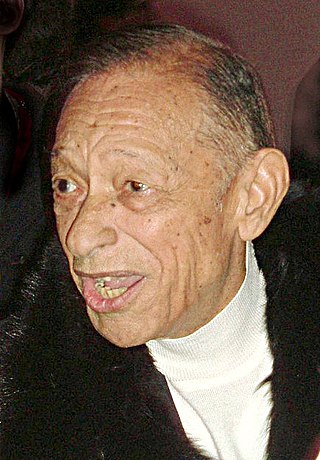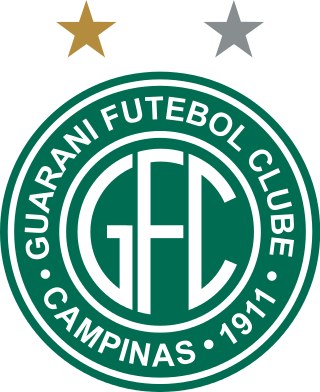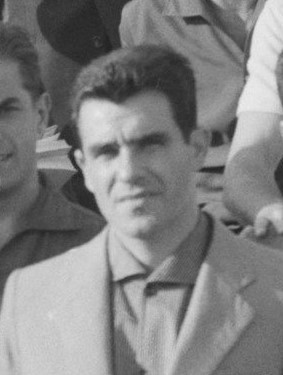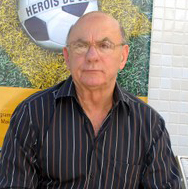
Edson Arantes do Nascimento, better known by his nickname Pelé, was a Brazilian professional footballer who played as a forward. Widely regarded as one of the greatest players of all time, he was among the most successful and popular sports figures of the 20th century. In 1999, he was named Athlete of the Century by the International Olympic Committee and was included in the Time list of the 100 most important people of the 20th century. In 2000, Pelé was voted World Player of the Century by the International Federation of Football History & Statistics (IFFHS) and was one of the two joint winners of the FIFA Player of the Century. His 1,279 goals in 1,363 games, which includes friendlies, is recognised as a Guinness World Record.

The Brazil national football team, nicknamed Seleção Canarinha, represents Brazil in men's international football and is administered by the Brazilian Football Confederation (CBF), the governing body for football in Brazil. They have been a member of FIFA since 1923 and a member of CONMEBOL since 1916.

Esporte Clube Vitória, commonly referred to as Vitória, is a Brazilian professional club based in Salvador, Bahia founded on 13 May 1899. It competes in the Campeonato Brasileiro Série B, the second tier of Brazilian football, as well as in the Campeonato Baiano, the top flight of the Bahia state football league.

Club de Regatas Vasco da Gama, commonly referred to as Vasco da Gama or simply Vasco, is a sports club based in Rio de Janeiro, Brazil. Although originally a rowing club and then a multi-sport club, Vasco is mostly known for its men's football team, which currently competes in the Campeonato Brasileiro Série A, the top tier of the Brazilian football league system, and in the Campeonato Carioca, the top state league of Rio de Janeiro.

The federative units of Brazil are subnational entities with a certain degree of autonomy and endowed with their own government and constitution, which together form the Federative Republic of Brazil. There are 26 states and one federal district. The states are generally based on historical, conventional borders which have developed over time. The states are divided into municipalities, while the Federal District assumes the competences of both a state and a municipality.

Henri Salvador was a French Caribbean comedian, singer and cabaret artist.

Guarani Futebol Clube, colloquially called Guarani, is a Brazilian association football club in Campinas, São Paulo. Guarani is the only club from Brazil's countryside to have won the top tier of the Brazilian Championship. The team currently play in the Série B, the second tier of Brazilian football, as well as in the Campeonato Paulista Série A1, the top tier of the São Paulo state football league.
The South American Championship 1957 was a football tournament held in Peru and won by Argentina with Brazil as runners-up. Bolivia, and Paraguay withdrew from the tournament.

Edvaldo Izidio Neto, commonly known as Vavá, was a Brazilian professional footballer who is widely considered to be one of the greatest strikers of his generation. Nicknamed "Peito de Aço", he most notably played for Vasco da Gama, Atlético Madrid, Palmeiras and the Brazil national team.
The following are the football (soccer) events of the year 1957 throughout the world.

Evaristo de Macedo Filho,, known simply as Evaristo, is a Brazilian former footballer and coach.

Dino Sani is a Brazilian former footballer and coach. Sani was an experienced playmaking central midfielder with goalscoring prowess, and a "team player", who was well known for his ball skills, technique, accurate passing, creativity, and close control. Although he was not gifted with notable pace or athleticism, his positioning, keen tactical intelligence, outstanding vision, and his adeptness at long balls, in particular, made him a capable assist provider throughout his career.
The following article presents a summary of the 1957 football (soccer) season in Brazil, which was the 56th season of competitive football in the country.

Leonardo Villar was a Brazilian actor. He became internationally known for his performance as Zé do Burro in Anselmo Duarte's O Pagador de Promessas, the only Brazilian film so far awarded a Palme d'Or at the Cannes Film Festival.
Emanuele Del Vecchio, commonly known as Del Vecchio, was a Brazilian football forward, who played for the Brazil national team.
This is a list of records and statistics of the Copa América, including everything from when it was called the South American Football Championship (1916–1975).

Waldyr Pereira, also known as Didi, was a Brazilian footballer who played as a midfielder or as a forward. He played in three FIFA World Cups, winning the latter two.

Events in the year 1957 in Brazil.

Angela Maria, the stage name of Abelim Maria da Cunha, was a Brazilian singer and actress. She was elected "Queen of the Radio" in 1954 and was considered the most popular singer of that decade in Brazil.
Urubatão Calvo Nunes, simply known as Urubatão, was a Brazilian footballer and manager. Mainly a defensive midfielder, he could also play as a central defender.













